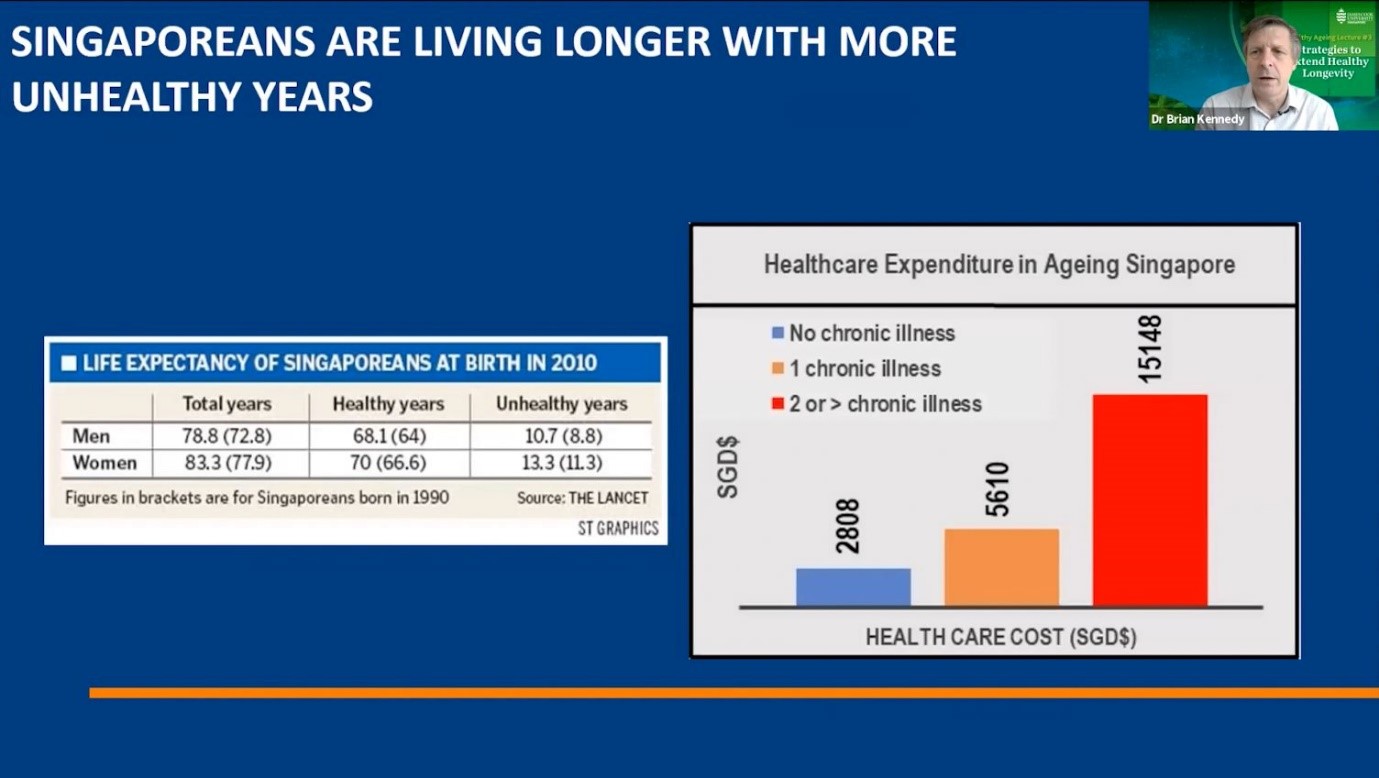Media Releases
Strategies to Extend Healthy Longevity
Media Releases

Professor Brian Kennedy shared insights on the slowing of ageing and increasing our healthspans, as well as the benefits of staying healthier for longer.
How do we take people that are still healthy and keep them healthy for as long as possible?
In the third instalment of the Healthy Ageing lecture series, Dr Brian Kennedy – Professor in the Departments of Biochemistry and Physiology at National University Singapore, and Director of the Centre for Healthy Longevity in the National University Health System – discussed known and novel ways to slow ageing in humans while increasing our healthspans (defined as the period of one's life that one is healthy), as well as the benefits that come with being able to stay healthier for longer.
As the ageing population grows, so do the challenges that come with ageing – such as a higher risk of chronic illnesses. What’s more, while our life expectancy may be increasing, it also increases the number of unhealthy years in our lives. This increases the costs associated with dealing with chronic illnesses, as well as poses a challenge to the productive workforce available to contribute to the economy.

As we tackle the issue of ageing head-on and work to extend the human healthspan, we can begin to save billions of dollars while preventing or delaying the onset of several medical conditions that accompany ageing. At the same time, this promotes quality of life and independence in our later years.
Professor Kennedy highlighted a number of small molecules he has worked on in his laboratory that target ageing in order to slow down the process, including Alpha Keto-Glutarate (AKG) and Spermidine. Through tests, use of AKG showed positive results such as adult stem cell function, metabolic flexibility, enhanced respiration and reduced chronic inflammation.
While diseases can generally be reliably diagnosed, the aging process itself requires more sophisticated approaches to evaluate its progression. Professor Kennedy also shared how we can identify and quantify human ageing at the cellular, tissue, and organismal level. These signs include factors such as facial biological age, cardiorespiratory fitness, nutritional assessment and more.
By treating ageing as a genetic disease instead of hunting for treatments for age-related diseases, we will be able to uproot the various age-related conditions that currently harm so many and cost so much.
View the full recording of the webinar "Strategies to Extend Healthy Longevity".
Find out more about the Tropical Futures Institute.
Discover further information on areas of research and research strength at James Cook University in Singapore.
Contacts
Research: Professor Caryn West researchdean-singapore@jcu.edu.au
Media: Pinky Sibal pinky.sibal@jcu.edu.au